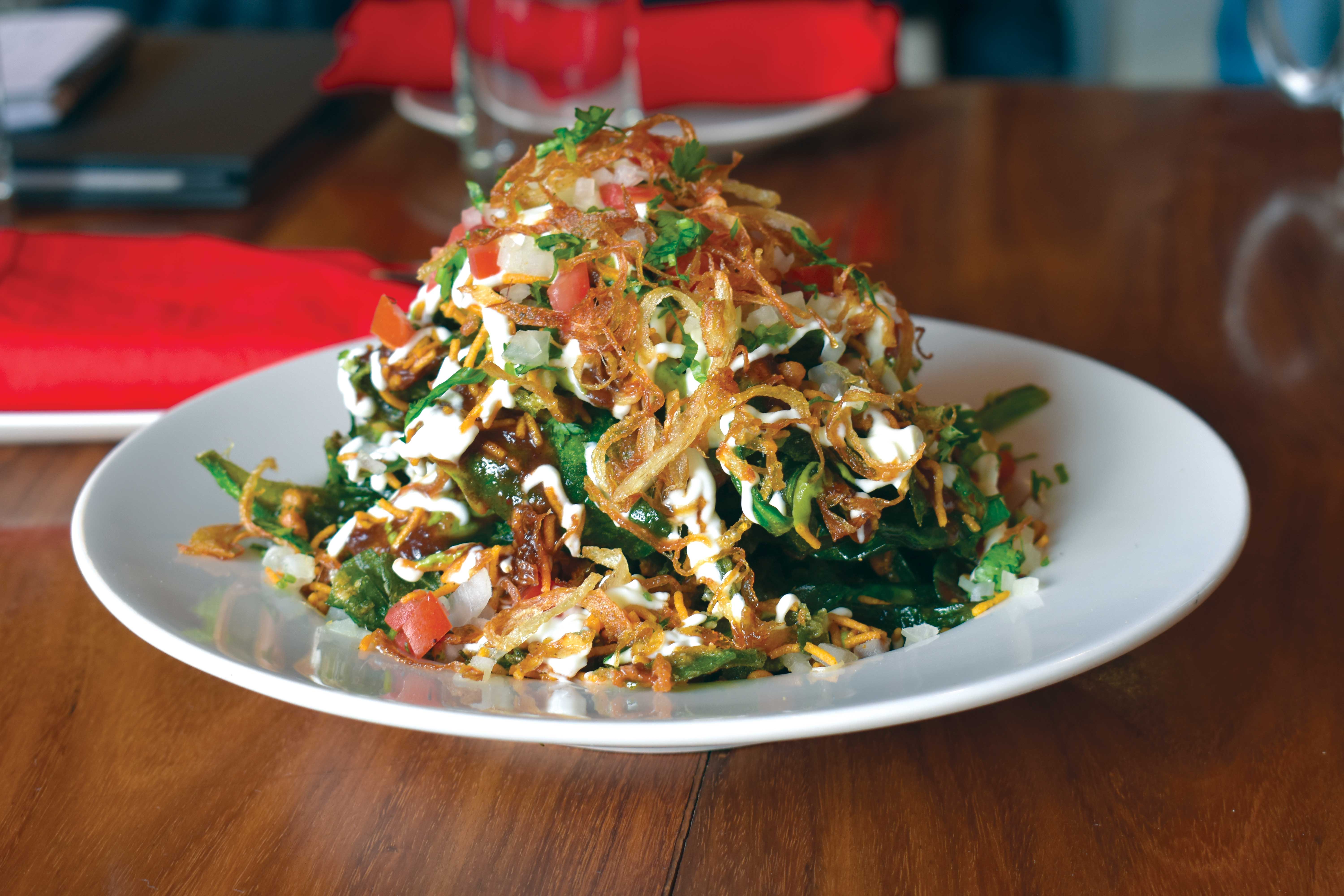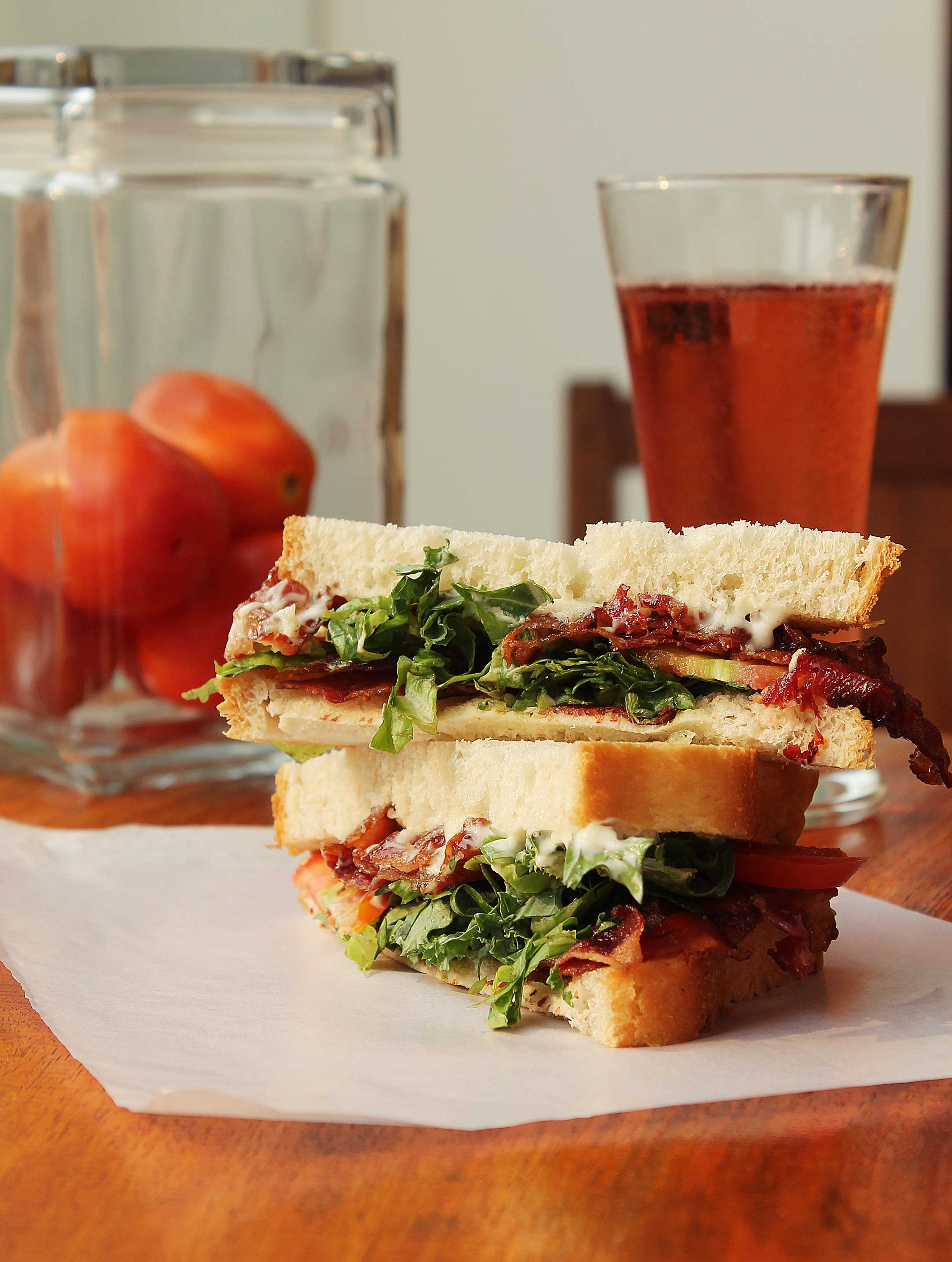The various cheeses produced by Pokhara Gourmet Cheese are the talk of the town of lakes.
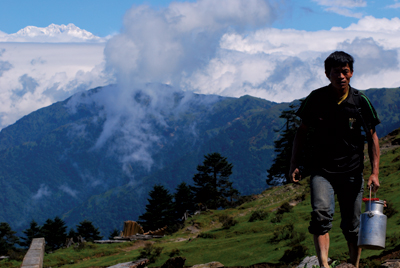
Villagers in Nepal have collection points where the milk is boiled collectively in order to reduce the usage of firewood.
At my favorite coffee shop in Pokhara, the AM/PM, we ordered the cheese platter. My friend and I were not quite expecting the wonderful spread of different gourmet cheeses that finally arrived—Feta, Romano, cream cheese, smoked Cheddar, Wensleydale and Red Leicester. One cheese had cranberries in it. The Red Leicester had a lovely orange color and a strong flavor. We ate up the platter in reverent silence, wondering if the age of the dried up Yak chunk and Nepal dairy cheese was over.
David, the lovely owner of AM/PM, who jokes about selling addictions— to homemade cheese-cakes and pies, hummus, cheese, and the lovely earthy ambience of a real coffee shop—offered to take me to meet the cheese makers. Sitting by the open air pavilion of the Bamboo Bar, owned by her husband Tilak, Sandra Subedi started to tell me the story of Pokhara Gourmet Cheese.
The company was created by Catherine Jones, an Australian from Tasmania, only a year ago. Through hard work, persistence and her amazing flavored cheeses, a number of local businesses now offer their customers a range of cheeses more in line with European markets. She also taught people like Sabina, David’s sister, to make cheesecake, expanding the range of pastries on offer. As we chatted, a young restaurant owner showed up demanding more cheese. One restaurant changed its entire menu to accommodate its new feta cheese offerings! The cheese is also marketed in the 1905 Organic Market in Kathmandu, and the American Embassy customers eat it up.
The feta cheese costs NRs.1200 for one kilogram. Due to lack of goat’s milk, the feta is made with cow’s milk—so it’s not a traditional Greek feta, but more of a Danish type, explains Sandra. Cheese purists may not see the cow’s milk feta as real feta—but the brine soaked chunks are every bit as delicious as the goat’s milk version. The cheese takes two days to make—it is turned every two hours, before being packed in brine. The cheese can last up to six weeks in the fridge. For Nepali restaurants in Pokhara, they can now use it in their dishes instead of adding chunks of paneer to their Greek salads! The stronger feta can also be used as a topping over pizza.
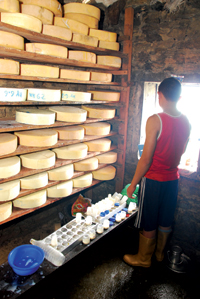 “It’s time consuming to make cheese,” explains Sandra. “It’s a lot of work. People don’t realize how much. I have been doing this from seven in the morning and it took me till three p.m. to get this batch done. You have to work like a scientist. Everything has to be clean. The whole place has to be spotless. You have to keep washing your hands or else the cheese will get contaminated. We have to keep stirring and testing the temperatures, and turning the cheeses every two hours. It requires a lot of patience to do this work.”
“It’s time consuming to make cheese,” explains Sandra. “It’s a lot of work. People don’t realize how much. I have been doing this from seven in the morning and it took me till three p.m. to get this batch done. You have to work like a scientist. Everything has to be clean. The whole place has to be spotless. You have to keep washing your hands or else the cheese will get contaminated. We have to keep stirring and testing the temperatures, and turning the cheeses every two hours. It requires a lot of patience to do this work.”
Sandra, who is Welsh and married to a Nepali man, was trained by Catherine to make a range of cheeses. Sadly, Catherine is understood to be leaving the country shortly. Catherine is leaving, but Sandra feels a sense of urgency and responsibility to keep the business going. “We’ve built up a clientele and they depend upon us. I have to continue the work,” she says determinedly. The work, however, is not easy. She says she made three batches of feta in the last three days. Her workday was nine hours long, and she has no help.
“The last batch required 140 liters of milk. We have to be very careful not to contaminate the milk. It is very dangerous to use unpasteurized milk. The dairies are not always straight with you—sometimes the milk is just not good. I had to lose 40 liters last time because it was just not good. Milk is supposed to do certain things at certain points. If it doesn’t, I throw it out,” she says. “My main concern is to keep the hygiene, and the quality.”
Then there’s the irregular supply factor. The dairies, for instance, didn’t supply her with milk over Dashain, bringing a temporary halt to the cheesemaking.
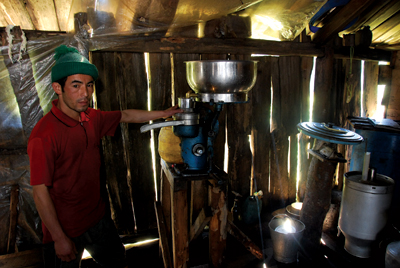
Some collectin points have endorsed modern technology to proces cheese
And yet Sandra is looking ahead. She is already planning to make some cheese for the Pokhara Street Festival in December, where the cheeses sold out last year. Her next project is halumi, a cooking cheese that tastes delicious when fried. And she’s thinking of a chilli marinated feta for her Nepali clients.
The business needs new investment, including a vacuum packer for the cream cheese, which curdles after two weeks. They also need to upgrade their cheese pressing equipment—the hammerheads they currently use fell off once and broke their sink, Sandra says, laughing. “There are thousands of rupees invested in a cheese business, but there is not always an immediate return,” she says, talking about hard cheeses which can take months to mature. “The business is profitable, but it’s not always as affordable as people think it is. I can’t afford help. We’ve not put the price of the cheese up since we started—and milk prices have gone up thrice!”
It’s clear as I try Sandra’s feta—marinated in olive oil and rosemary—that there is a huge potential to expand the cheese business in Nepal. It’s also clear that people like Catherine and Sandra have the expertise to build up this business. This could, in turn, help to invigorate the restaurant, food and tourism industries here. How can Nepal retain its innovative small entrepreneurs while corrupt lawyers and exorbitant fees sap their enthusiasm and energy? Until there’s reform of government laws to allow legitimate small business professionals obtain a visa more easily, our country will continue to lose its well-wishers.
In the meantime, perhaps some donor working with small enterprises could partner with and support Pokhara Gourmet Cheese to help the business expand. Imagine all the milk that gets chucked during bandhs being turned to delicious cheese and putting money into the pockets of hardworking farmers?






